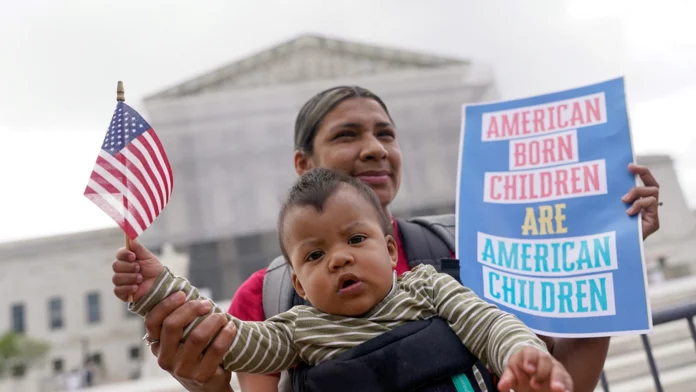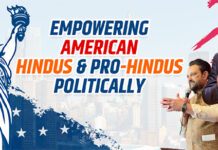Vidya Sethuraman
India Post News Service
Birthright citizenship is enshrined in the 14th Amendment and has been regarded as a right extended to any child born in the US since 1868. Experts predict that 255,000 children each year will be impacted by this new policy, creating an underclass of 2.7 million children by 2045.
The president’s order, issued on his 1st day in office, would impact children born to undocumented parents, but would also impact kids born to those in the US on temporary visas, such as H-1B workers. Several civil rights organizations have filed lawsuits and amicus briefs challenging Trump’s executive order.
On May 16, American Community Media (ACoM) held an online media briefing and invited a number of legal and immigration experts to analyze the executive order’s far-reaching impact on American constitutionalism, ethnic rights and future demographic structure.
Professor Robert S. Chang, Executive Director, Korematsu Center for Law & Equality at UC Irvine School of Law pointed out that Trump’s executive order is not a single incident, but continues the long tradition of excluding nationality against people of color in American history. The naturalization law first passed in the United States in 1790 was limited to “free whites”, and the “Dred Scott case” in 1857 even made it clear that African Americans could never become citizens.
Julia Gelatt, Associate Director of the US Immigration Policy Program at the Migration Policy Institute pointed out from a demographic perspective that this policy may have counterproductive effects. Citing the latest report, she pointed out that if birthright citizenship is restricted, there will be an additional 2.7 million children without legal status in the United States, and this number may reach 5.4 million by 2075, and many children will become stateless.
These children will be unable to apply for government aid, attend college, or work legally, effectively becoming marginalized in American society. This will not only weaken our leading position in global immigrant integration, but will also have a huge impact on the labor market and administrative system.
Martin Kim, Director of Immigration Advocacy at Asian Americans Advancing Justice | AAJC emphasized that the order is based on an extremely fringe legal theory and attempts to amplify the restrictions of the “subject to jurisdiction” language of the 14th Amendment. He said, “The president cannot decide who is a citizen and who is not by signing an order.” If such logic is established, it will destroy everyone’s trust in the stability of civil rights. Therefore, it is unclear whether there will ultimately be a ruling on the executive order itself. This order is ostensibly targeted at future newborns, but in essence it is an attempt to give the president the power to unilaterally deprive people of their nationality.
Also Read: Judge blocks Trump’s executive order to end birthright citizenship, citing unconstitutionality







